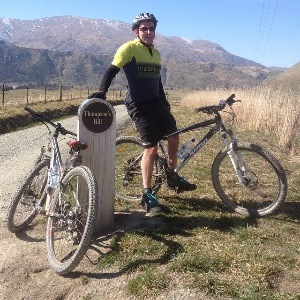Pro-bono work recognised
A pro bono initiative run by the Southland branch of the IFA could be replicated across the country when Financial Advice NZ becomes operational.
Friday, August 18th 2017, 6:00AM
by Susan Edmunds

The IFA gave its Southland branch an award at this year's conference for the pro-bono programme, through which advisers offer free advice to Citizens Advice Bureau clients.
A clinic is held once a month and local IFA members each take one or two a year.
IFA president Michael Dowling said there had been discussions about making it a larger programme and launching the initiative in bigger cities.
But he said it was decided that was something that would be better to run under Financial Advice New Zealand.
Stephen O'Connor, of the IFA's Southland branch, said the initiative had not had as much traction as it had been hoped.
"It started off okay and then built up but has dropped away a bit. Most Citizens Advice Bureaux have successful legal clinics or other clients, we thought why not have a financial advice clinic?"
Its success was dependent on Citizens Advice Bureau volunteers understanding what financial advice could do for clients and how it was different from budgeting advice, he said, so that they would refer people to the clinics.
But he said it had helped to raise the profile of the IFA and had helped a number of consumers, some of whom had gone on to become advice clients.
Some had wanted help with their insurance policies to understand what they had and what they needed, he said.
He said pro-bono work should be a key part of what advisers offered. "The more advisers can do that sort of thing the better it helps the public perception of financial advisers."
Many were already doing it in an ad hoc way, he said. "You come across people who are not in a position to pay but could do with some advice - they're in the accumulation stage and looking for some direction or help with debt structuring rather than having a lump sum to invest."
The scheme might be more successful in smaller communities than in larger cities, he said, because it was easier to become well-known in a regional environment.
| « Getting to Know: Peter Neilson | LVR restrictions to be reviewed » |
Special Offers
Comments from our readers
No comments yet
Sign In to add your comment
| Printable version | Email to a friend |



